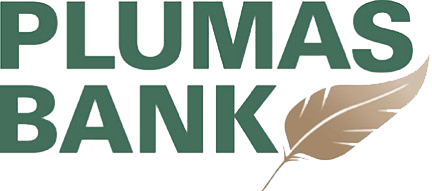

Robert Porter
Vice President and Business Development Officer
Robert Porter has specialized in the financing of small businesses throughout California, Nevada, Oregon, Washington and Arizona since 1989. He originates and facilitates SBA 7a loans for the purchase or startup of a business, SBA 7a and SBA 504 loans for the purchase of real estate for a small business, Investor loans for the refinance or purchase of commercial real estate, and Conventional Loans.
Robert Porter has specialized in the financing of small businesses throughout California, Nevada, Oregon, Washington and Arizona since 1989. He originates and facilitates SBA 7a loans for the purchase or startup of a business, SBA 7a and SBA 504 loans for the purchase of real estate for a small business, Investor loans for the refinance or purchase of commercial real estate, and Conventional Loans.
What Information is Required from Sellers and Buyers for SBA Financing?
- These items, if applicable, should be provided by all Sellers.
- Last three (3) years or more completed Federal (Only) tax returns. In today’s electronic world, there should be NO reason these items are not available.
- Complete Financial Statements (Income Statements and Balance Sheets) for last three (3) years or more AND interim period (today, say, thru 3/31/2021). Given Covid-19 and its effects on so many businesses in 2020, I recommend this data also include monthly P & L’s for all these periods. Again, in this electronic world, with Quickbooks or the like, this should be readily available data.
- Details of any and all concentrations – vendors and customers. List (redacted) of concentration and $ and %’s of revenue or COGS in last couple years.
- Accounts Receivables and Accounts Payables data for latest year-end (calendar or fiscal) and interim period. This it is industry dependent!
- Copy of existing Lease Agreement. Leases and landlords have destroyed business sales recently and a strong, assignable, extendable, lease is critical to the deal.
- History of the business, Yelp, Google, Tripadvisor, etc. social rating scrub/fix (if negative), Website update, etc. We don’t sell a home without new paint, carpet, green grass, and flowers, why try to sell a socially broken or obsolete business?
- Real Estate, when included: Real estate details, preliminary title report or property profile, old appraisal and/or environmental report.
- Pre-qualifying serious buyers: A broker should never spend more than one (1) hour working with or for a buyer that is not willing to fully disclose and provide the following:
- Management Resume(s) – broker to provide form. Broker should also search LinkedIn for secondary resume, when applicable.
- Personal Financial Statement(s) – broker to provide form – recommend SBA form for standardization.
- Bank, IRA, 401K, and/or Brokerage Investment Statement(s) verifying cash liquidity! A broker should ask upfront “Where is your money coming from?”
I have been told over the years by successful business brokers that the more a broker gets upfront from the buyer, the more committed/motivated the buyer is to the buying process and that particular broker. Comparatively, I use our SBA application package to screen out those who want to get “prequalified” and are actually only time-wasters who are only there to kick tires. The more you ask of a buyer upfront, the more a buyer does upfront, the more motivated and committed that buyer is to seeing the process through. If a buyer is not willing to share his/her/their information with a broker, why work for them?
- Broker’s Confidential Business Review (CBR) or Confidential Information Memorandum (CIM) – this is the broker’s standardized marketing/information package on a business.
- Summary (or great details) of the business – the who, what, where, when, and why. This could be 1 to 30 pages in length depending on complexity of the listing.
- Listing price, including or excluding inventory, etc.
- Detailed Financials – Excel spreadsheets of the last three (3) years and interim period with recast/add-backs. CABB’s spreads and add-backs for SDE purposes are excellent and standard.
- Lease Summary – details of existing/remaining lease term, options, assumption, new lease needed, etc.
- Page 1 (or more) of three (3) years of tax returns (redacted) and/or P & L’s. Some buyers are analytical and want to see the math, not just read the verbiage.
- Photos – inside & outside, Location Map, Yelp Ratings, Web address, etc. Some buyers are visual and want to see the business.
In the end, it all goes back to common sense! What a business is worth in the Fair Market is a function of its supportable, verifiable, adjusted cash flow times an industry multiple. Industry multiples vary generally and range 2X to 3.5X for MOST businesses. Some smaller businesses sell for less than a 2X and some larger unique business sell far in excess of a 3.5X multiple. I look at like this when working with a buyer – Can they feed their family and pay their business debt(s) back?
I am here to assist Liberty Business Advisor’s buyers and sellers with their financing needs. The more information I have available to analyze a business (for listing prequalification purposes), the better. When working with a buyer, the more motivated and forthright they are with me, the faster I can get their request approved, processed, and closed.